Is Hard Water Safe To Drink?

Staying hydrated is one of the best daily activities you can do for your health. Luckily, for many of us in the first-world countries, water comes easily and cheaply through our faucets. However, not all the water that comes from our sinks is of the same quality. Though they may not look different, hard and soft water are both common in American households.
Water is clear, but it contains a variety of microscopic minerals that are invisible to the naked eye. The composition of these minerals within the water determines the hardness of the water. The question is often asked, then, “Is hard water safe to drink?” This post will answer this question. To learn if alkaline water is better for you, hop here.
Is Hard Water Safe To Drink?
What Is Hard Water?
Water hardness refers to the number of high levels of dissolved minerals, mainly calcium and magnesium in water. Your water is considered moderately hard if it has above 60 mg/L (milligrams per liter) of the sum of calcium and magnesium, both expressed as calcium carbonate. Next, hard water contains 121 to 180 mg/L of calcium carbonate and very hard water contains more than 180 mg/L (source).
Furthermore, water hardness can be measured in grains per gallon (gpg). To convert milligrams per liter to grains per gallon, you can divide it by 17.118. For example, 180 mg/L corresponds to 10.515 gpg. For your convenience, you can also use an online calculator such as this one.
When I tested our tap water, it was 275 mg/L or 16.11 gpg. That was extremely hard water. I tested my water with Tap Score, my favorite water testing service. The water hardness test was part of the Advanced City Water Test (email us for a discount code). You can also opt for the Specialized Water Hardness Test. Alternatively, you can call your water district and ask them for your water hardness report.
Needless to say, we have experienced the worst versions of these signs of hard water:
- filmy hands after washing
- mineral spots/film on dishes
- mineral stains on clothing
- lower water pressure
- your soap or detergent doesn’t lather well, and you need more to get things or your body clean, and
- your hair becomes brittle, dry, and even falls out (source).
Is It Safe To Drink Hard Water?
Generally speaking, hard water is safe to drink when it’s filtered (like all water). It is rich in such essential minerals as calcium and magnesium, which are beneficial to human health in many ways. Conversely, inadequate intake of either nutrient can result in adverse health problems.
Namely, lack of calcium has been associated with increased risks of osteoporosis, kidney stones, colorectal cancer, hypertension, stroke, coronary artery disease, insulin resistance, and obesity. Further, insufficient magnesium is linked to increased risk of hypertension, coronary heart disease, type 2 diabetes, and metabolic syndrome, to name a few (source). Therefore, the conclusion can be drawn that hard water containing naturally occurring calcium and magnesium should help prevent many health conditions, but that, of course, will depend on the amount of the minerals in your water.
In addition, some ecologic studies (aka studies done on geographic groups of people) found some potential positive effects of drinking hard water, which I will list below. However, the World Health Organization explains that due to the fact that there are other factors that can play a role in the health of a geographic population, no firm conclusions can be drawn (source).
Although hard water is safe to drink, it can cause issues elsewhere in your home. Hard water can leave soap scum and mineral deposits on your dishes and laundry. It can be harmful to your pipes and appliances. You will also find that your mild, non-toxic soaps or detergents do not work well with hard water since the minerals reduce their lathering. Further, taking a shower or bath with hard water can produce damaging effects on your hair and skin. I can tell you that from my personal experience. Please tell us in the comments if you experience that as well.

Potential Positive Effects Of Drinking Hard Water
While studies are not conclusive and the positive effects will depend on the mineral content of your water, there is evidence that hard water may help:
- protect against liver cancer (source and source)
- protect against gastric cancer (source)
- protect against cardiovascular disease (source and source)
- contribute to higher bone mineral density (source)
- protect against cerebrovascular disease mortality (source), and
- protect against hypertension (source).
Potential Negative Health Effects Of Washing With Hard Water
- Atopic dermatitis due to washing in hard and chlorinated water (source)
- Brittle, dry hair and hair loss (source) (You can read more about the most overlooked hair loss causes here.)
Water Softening Systems You Can Consider
There are three common types of water treatments you can consider that deal with the negative effects of hard water on your plumbing, appliances, hair, and skin. To help you make the right decision, let’s go over them.
Distillation
Water distillation intends to mimic the natural cycle of rain: evaporation and condensation. Because of this, perhaps some people assume that distillation systems are optimal or that they can purify water by boiling. That is actually inaccurate, and you can read more about why in my post Does Boiling Water Make it Safe to Drink?
In reality, a distillation system removes heavy metals, beneficial minerals (calcium and magnesium), and some VOCs. It’s not great for removing pesticides and herbicides, for example, unless it uses an additional medium.
The main drawback I see is that distillation systems require electricity and, thus, can be expensive to run. Some of the popular distillers claim that they can make nearly 1 gallon of water in 3.5 hours!

Ion Exchange (Water Softeners)
To soften water, you can get an ion exchange water softener installed. They also call them “salt-based” water softeners. The ion exchange water softeners swap the ions of calcium and magnesium for sodium ions. In other words, the softened water will have increased sodium and chloride content.
On the plus side, this water softening process prevents scaling in pipes, fixtures, and water heaters and improves laundry and dishwashing experiences. Further, taking a shower or bath with softened water improves skin and hair condition. I am speaking from my personal experience. The first time I washed my hair with softened water, my hair stopped falling out, and my skin and scalp are no longer dry.
On the minus side, softened water is not good for drinking because of the increased sodium and chloride content. Our water softener bypasses the kitchen sink, so we don’t drink the water treated with our salt-based water softener. Instead, we filter the kitchen sink water with a Pure Effect water filtration system.
If your house design makes it challenging to accomplish the bypass, you can consider softening only the hot water line at the entry to the hot water heater. Alternatively, you can install a Reverse Osmosis (RO) water filtration in the kitchen that will remove the sodium and chloride added by the water softeners.
I highly recommend talking to the Clean Water Revival specialists. They will help you design the water filtration and softening system that is optimal for the contaminants in your water as well as your house design and budget. Click here for a discount code.
Salt-Free Water Conditioners
There are a variety of different hard water conditioners that promise to soften hard water without the use of any salt. Before we decided to opt for a salt-based water softener, I thoroughly researched them. The conclusion I arrived at is that safety information is not easily accessible. Additionally, the drawback is that the salt-free water conditioners are designed to prevent magnesium and calcium from adhering to the pipes. However, they still remain in the water, which won’t improve your washing processes as well as the condition of your hair and skin. This was not acceptable for us.
Conclusion About Drinking Hard Water
Hard Water Is Generally Safe To Drink, But It Can Have Other Negative Effects That May Make You Consider A Water Softener.
You can safely drink hard water and even perhaps reduce the risk of cardiovascular disease. Nevertheless, a water softener may be a better option to make your soaps and detergents more effective, protect your skin and hair from damage, and reduce the strain of mineral build-up on your pipes and appliances. I suggest drinking water that bypasses your water softener if you choose to get one. This will optimize the benefits of both hard and soft water variants.
Importantly, both soft and hard water is safe and useful in conjunction with an effective water filter system. Water treatments will help make your water optimally safe by removing possibly harmful contaminants. (Note that magnesium and calcium are not harmful). For more information on safe drinking water and other healthy living advice, visit the I Read Labels For You Blog and the shop section of the website for products that we vetted for safety.
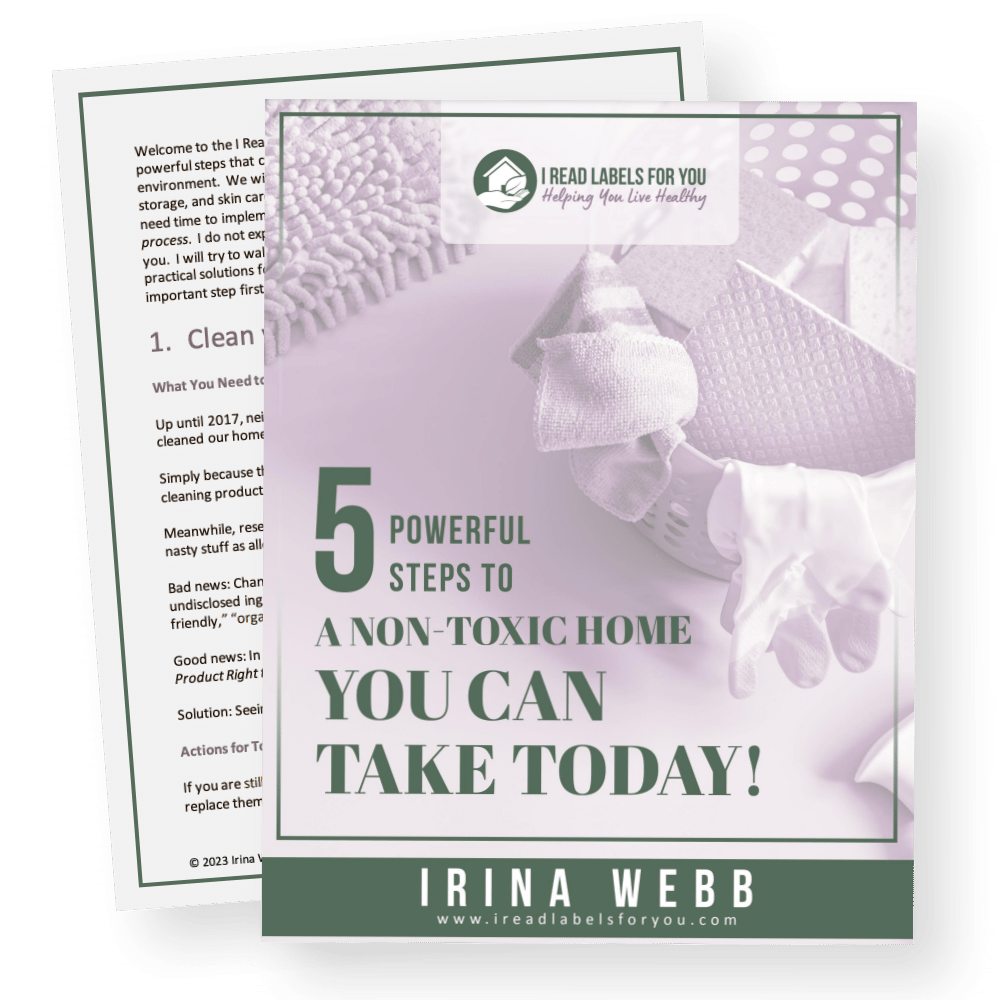
Download The Free Guide!
5 Powerful Steps To A Non-Toxic Home
Join our informed consumer community and get our free guide the “5 Powerful Steps To A Non-Toxic Home”.

 Written by
Written by 
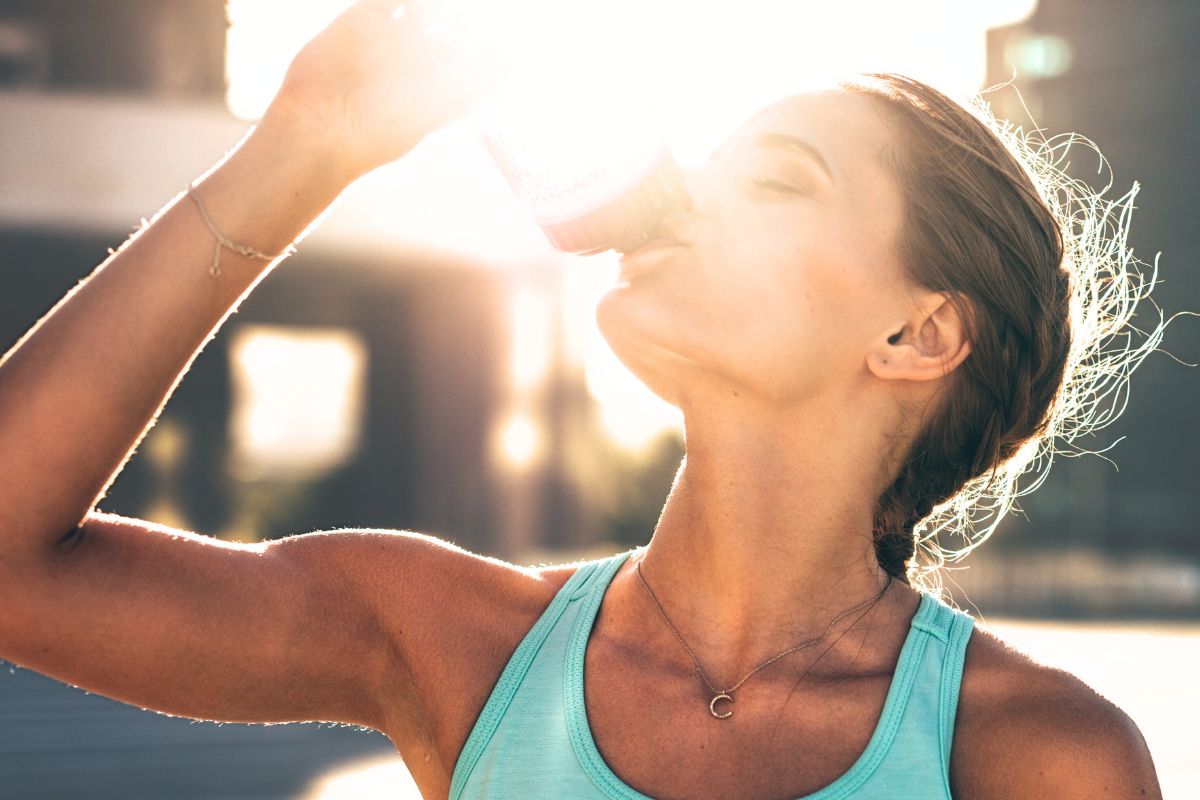
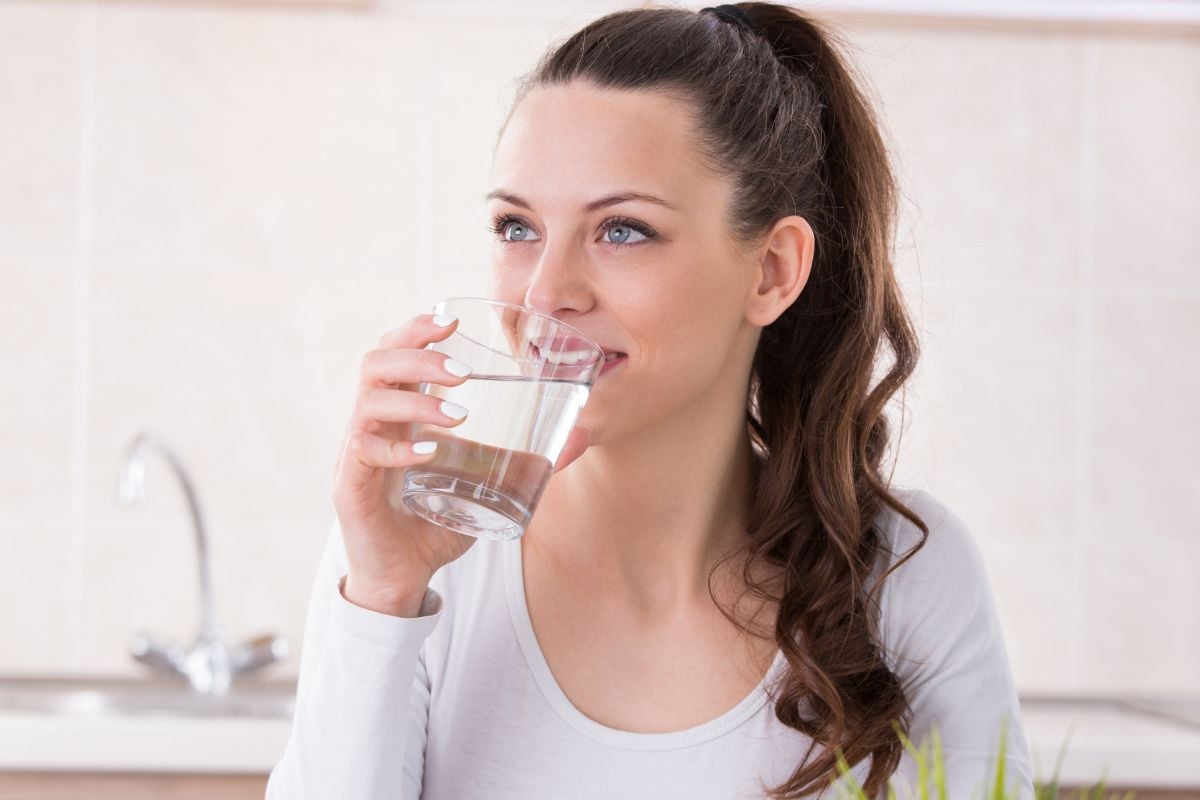

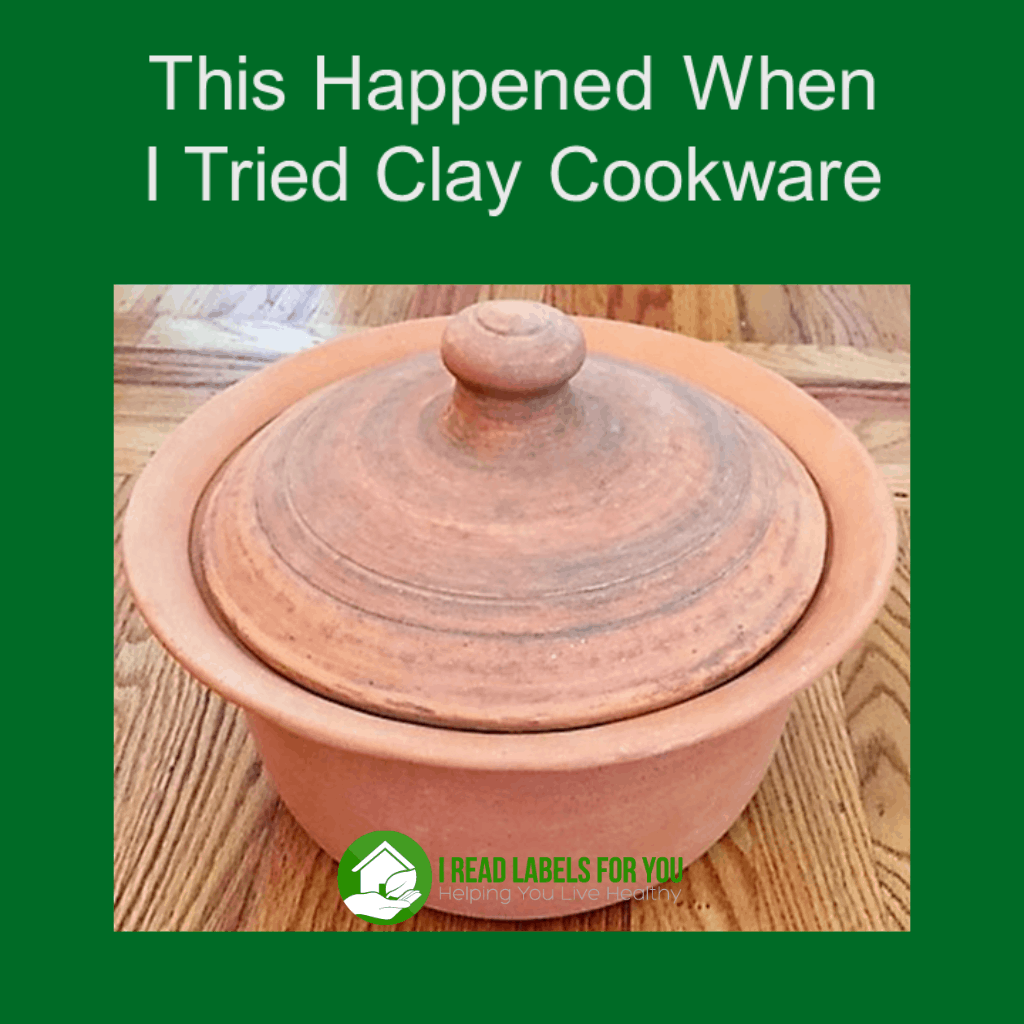
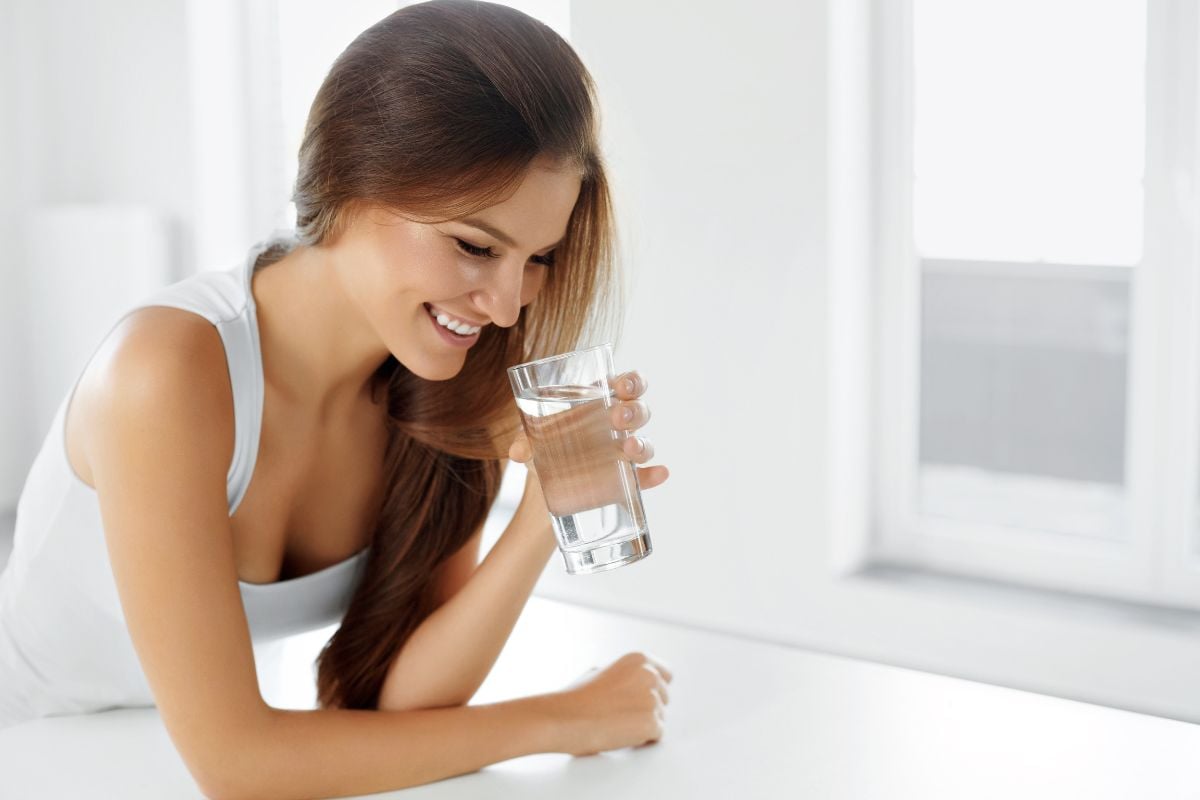
Before commenting, please read our Comment Policy.